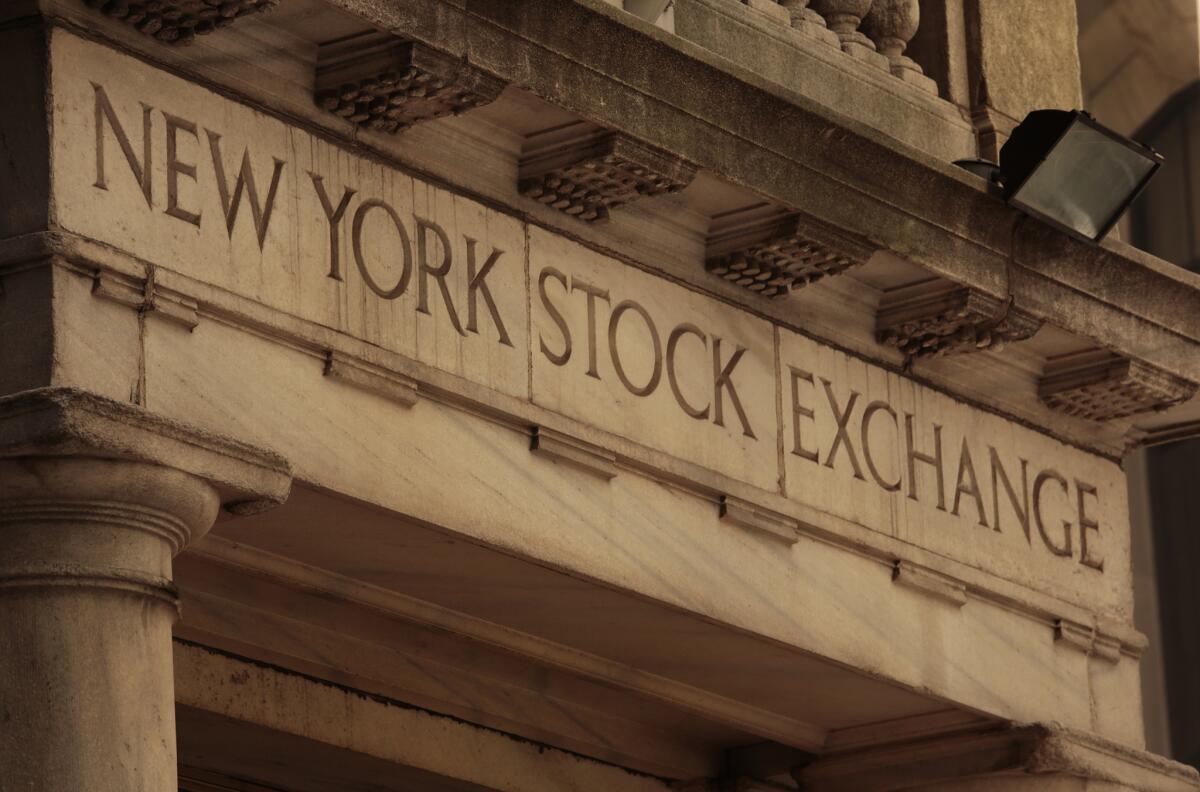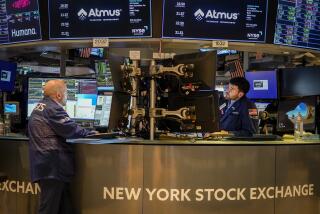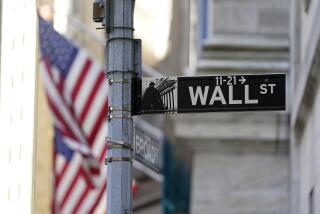Stocks tumbling, trailing global markets down

U.S. stocks were opening sharply lower Tuesday following a slump in global markets.
European markets were sliding Tuesday after an early presidential vote was called in Greece, which investors feared could jeopardize the country’s bailout program. Greece’s stock market suffered its biggest one-day loss since 1987. Stocks also fell sharply in China after regulators there tightened rules for lending.
KEEPING SCORE: The Dow Jones industrial average dropped 128 points, or 0.7%, to 17,723 as of 10:03 a.m. Eastern time. The Standard & Poor’s 500 index fell 14 points, or 0.7%, to 2,045. The Nasdaq composite lost 41 points, or 0.9%, to 4,699.
EUROPE: France’s CAC-40 fell 2.3% and Germany’s DAX lost 1.9%. Britain’s FTSE 100 shed 1.7%.
GREECE PLUNGE: The Athens stock exchange plunged 12% lower, its biggest one-day drop in almost 30 years. Investors are worried that the country might have to hold early general elections and that a left-wing opposition party that is leading in the polls, would win. The Syriza party wants a cut to what Greece owes in bailout money. Such a move could spook investors for years, derailing the country’s path out of its financial crisis.
CHINESE MARKETS: Major Chinese oil and bank stocks fell, some by the daily limit of 10% allowed by regulators, as the market took a break from a buying frenzy that has pushed the Shanghai benchmark up 41% since June. Investors had been driven by hopes for an economic rebound combined with outright cheerleading by the state press. Stock prices fell Tuesday after China’s clearing house for securities trades raised the minimum rating for corporate bonds it would accept in exchange for short-term credit, prompting concern about the availability of financing for trades.
THE QUOTE: Hu Guopeng, an analyst at Founder Securities in Beijing, said the plunge in China’s stock markets was a “technical correction” linked to the uncertainty about credit availability created by the change in collateral requirements. It “does not mean the end of the market boom,” Hu said.
ASIAN SCORECARD: The Shanghai Composite Index dived 5.4%, though it’s still up 6.6% over the past week following a months-long rally. China’s four major state-owned banks all dropped by at least 9%. Sinopec Ltd., Asia’s biggest refiner by volume, fell 8.2%. Hong Kong’s Hang Seng dropped 2.3% and Tokyo’s Nikkei 225 fell 0.7%.
GRIM DATA: Investor sentiment was also hurt by weak economic data. On Monday, a report showed China’s November export growth was weaker than forecast and imports unexpectedly contracted. That suggested economic growth might be cooling further after hitting a five-year low in the latest quarter. For Japan, revised figures for the July-September quarter showed its economy shrank 1.9%, a bigger drop than previously estimated.
ENERGY: U.S. benchmark crude was little changed at $63.03 per barrel in on the New York Mercantile Exchange. The contract plunged $2.79 on Monday to close at $63.05.
CURRENCIES and BONDS: The dollar declined 1.6% to 118.96 yen from Monday’s 120.87 yen. The euro rose 0.9% to $1.2421. U.S. government bond price rose. The yield on the 10-year Treasury note fell to 2.22% from 2.26% late Monday.






